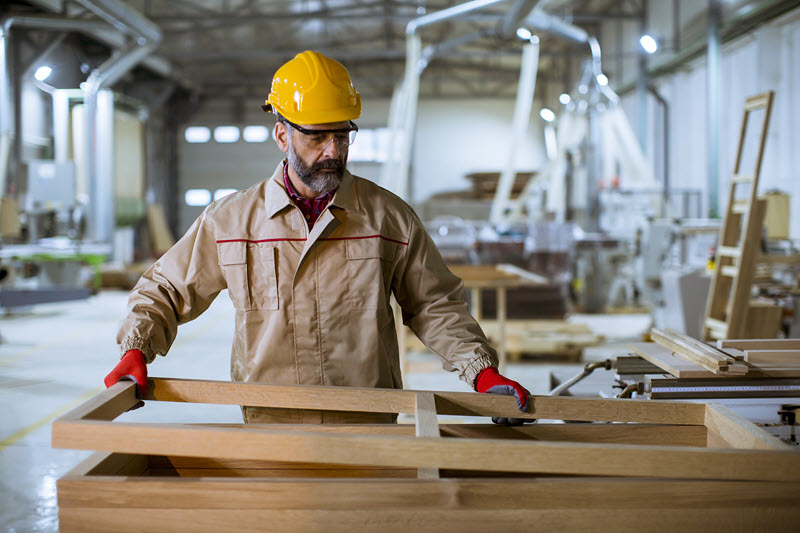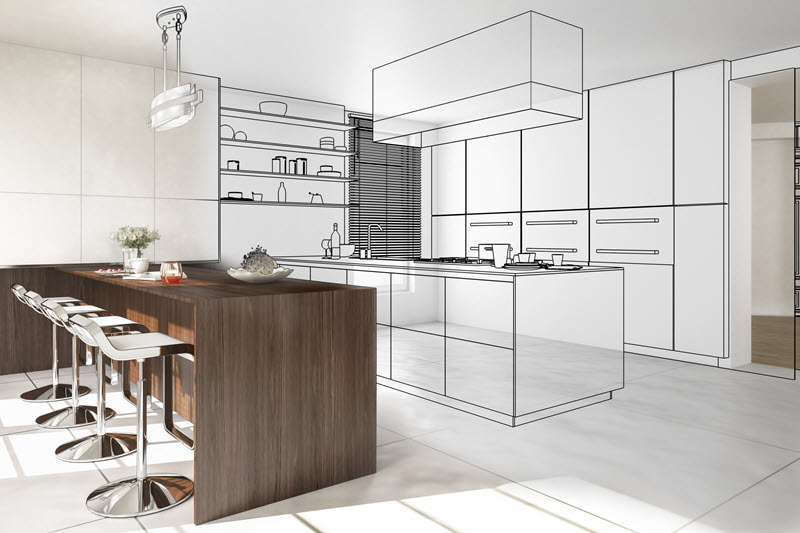People today increasingly seek to fill their homes with products that are personalized according to their tastes, desires and constraints. At the same time, they expect top-notch experiences with the companies they choose to work with.
However, providing this level of customization and service to customers comes at a cost – contrary to the nature of today’s mass production model in manufacturing. To that end, furniture, kitchen and bathroom manufacturers need to explore new ways of optimizing their supply chains to achieve mass customization while creating top-notch consumer experiences.
How one home fittings company enabled mass customization
We recently worked with a home fittings company that places customization at the heart of their brand. They specialize in designing precision, made-to-measure, quality furniture for kitchens, bathrooms and storage, as well as a variety of tables and chairs.
Customers have access to a wide range of customization in their orders: colors, materials, finish, dimensions, handles, shelves, drawers, racks, cupboards, functionality and more. Each component is made to order in the company’s factories, but these are still done on an industrial scale.

To avoid production slips or confusion on the manufacturing lines – and to give customers a clear idea of delivery times – the company needed real-time visibility as well as collaboration between all departments involved. Siloed operations are liable to create blind spots in planning, so the company developed more effective planning processes, focusing on agility at every step of the production lifecycle.
The company makes consumer experience a priority at every stage so that they can deliver the right product on time and ensure the installation goes smoothly. Not only do these changes help them better meet consumer needs, but it also allows them to increase their revenue and profit margins.
Building resilience in a world of disruptions
Companies need to rapidly adapt to changes in supply and demand, especially after seeing how the COVID-19 pandemic disrupted supply chains around the world. Manufacturing operations now run the risk of being exposed to volatile supply. Demand for raw materials such as lumber has skyrocketed in recent months, causing headaches to suppliers and manufacturers in short-term production planning software.
And yet, customers still expect transparency, control and accurate lead times on the completion of their kitchens and furniture. To achieve this goal, manufacturers must connect the dots between design and engineering, manufacturing, transportation, sales and marketing, as well as services.
The number of potential scenarios in a sudden disruption can quickly go beyond the capabilities of a human planner. Decision making in a complex environment should not be based only on the planner’s past experiences or on simple heuristics. The best decisions only come from a powerful solution that can calculate all eventualities and identify added value.
Scenario planning is the key to true optimization and steering your way to success through a field of infinite possibilities. With the right technology, you have the freedom to explore numerous diverse options, dramatically improving the effectiveness of the planning process.

Siloed planning will become a thing of the past as DELMIA Quintiq solutions can automatically consider and adapt to complex networks in multiple locations with various resources and supply chain sourcing options. Planners can gain immediate insight into the quality of their plans and schedules thanks to visual feedback from the platform.
Using DELMIA solutions powered by the 3DEXPERIENCE platform gives you access to a smart, integrated system to overcome critical challenges in any market condition, taking into account all planning horizons (strategic, tactical and operational) with planning algorithms that make your supply chain more agile and flexible. In doing so, you can more easily meet changing business needs as well as address and mitigate disturbances in your supply chain.
Read the case study to learn how virtual twins let the company model all elements of planning and execution; testing as many ‘what if’ processes and logistics scenarios as they wish.
Want to your transform Home & Lifestyle business by:
- Gaining better visibility over your resources and operations;
- Continuously optimizing operational performance against key business metrics;
- Connecting the dots between design and engineering, manufacturing, sales and marketing as well as services; and
- Providing configurable furniture at scale?
We invite you to learn more about Dassault Systèmes solutions dedicated to Home & Lifestyle Manufacturers, including:

